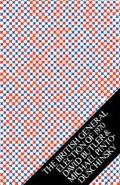Abstract
Eight p.m., May 18, 1970. The election had just been announced: on BBC-1 Panorama was showing Mr. Wilson, Mr. Heath and Mr. Thorpe in turn giving a first airing to phrases which were to be daily fare during the month ahead; and on ITV the same three were facing different inquisitors in different order, but answering almost identical questions in almost identical words. Here was a demonstration both of the place that television had taken in ‘traditional’ election ritual and a vignette of its place in the campaign ahead — the parallel behaviour of the two networks, the conventional questioning, the absence of direct discussion between the politicians and the implicit evidence of uneasy relations between the broadcasters and the parties. For while Mr. Heath and Mr. Thorpe were interrogated sternly in the antiseptic decor of the studios, Mr. Wilson had been recorded amiably puffing his pipe amid the sunshine and flowers of his Downing Street garden. Whether from pressure of work or painful memories of his rough handling at the comparable stage in 1966, Mr. Wilson had made it known that he would be available for interview at Number 10 by ‘accredited political correspondents’ only, which in the event meant the unfailingly courteous Peter Hardiman Scott for the BBC, and George Ffitch for ITN.
Access this chapter
Tax calculation will be finalised at checkout
Purchases are for personal use only
Preview
Unable to display preview. Download preview PDF.
Notes
The phrase is used by Mr. John Grist, Head of BBC-TV’s Current Affairs Group, in a refreshingly thoughtful and self-critical review of the campaign in Listener, July 2, 1970.
See articles by Robin Day (Encounter, May 1970).
Jeremy Isaacs (Encounter, March 1968 and Listener, June 18, 1970).
John Grist’s article, already mentioned, and John Whale’s The Half-Shut Eye (London, 1969). For the Benn and Crossman criticisms see the national press for October 19 and 22, 1968. The most notable academic contributions have been J. G. Blumler and D. McQuail, Television in Politics (London, 1968) and articles by Blumler in P. Haimos (ed.), The Sociology of Mass Media Communicators, and Listener, June 25, 1970.
For the Benn and Crossman criticisms see the national press for October 19 and 22, 1968. The most notable academic contributions have been J. G. Blumler and D. McQuail, Television in Politics (London, 1968).
Articles by Blumler in P. Haimos (ed.), The Sociology of Mass Media Communicators, and Listener, June 25, 1970.
Copyright information
© 1971 David Butler and Michael Pinto-Duschinsky
About this chapter
Cite this chapter
Harrison, M. (1971). Broadcasting. In: The British General Election of 1970. Palgrave Macmillan, London. https://doi.org/10.1007/978-1-349-01095-0_9
Download citation
DOI: https://doi.org/10.1007/978-1-349-01095-0_9
Publisher Name: Palgrave Macmillan, London
Print ISBN: 978-1-349-01097-4
Online ISBN: 978-1-349-01095-0
eBook Packages: Palgrave Political & Intern. Studies CollectionPolitical Science and International Studies (R0)

